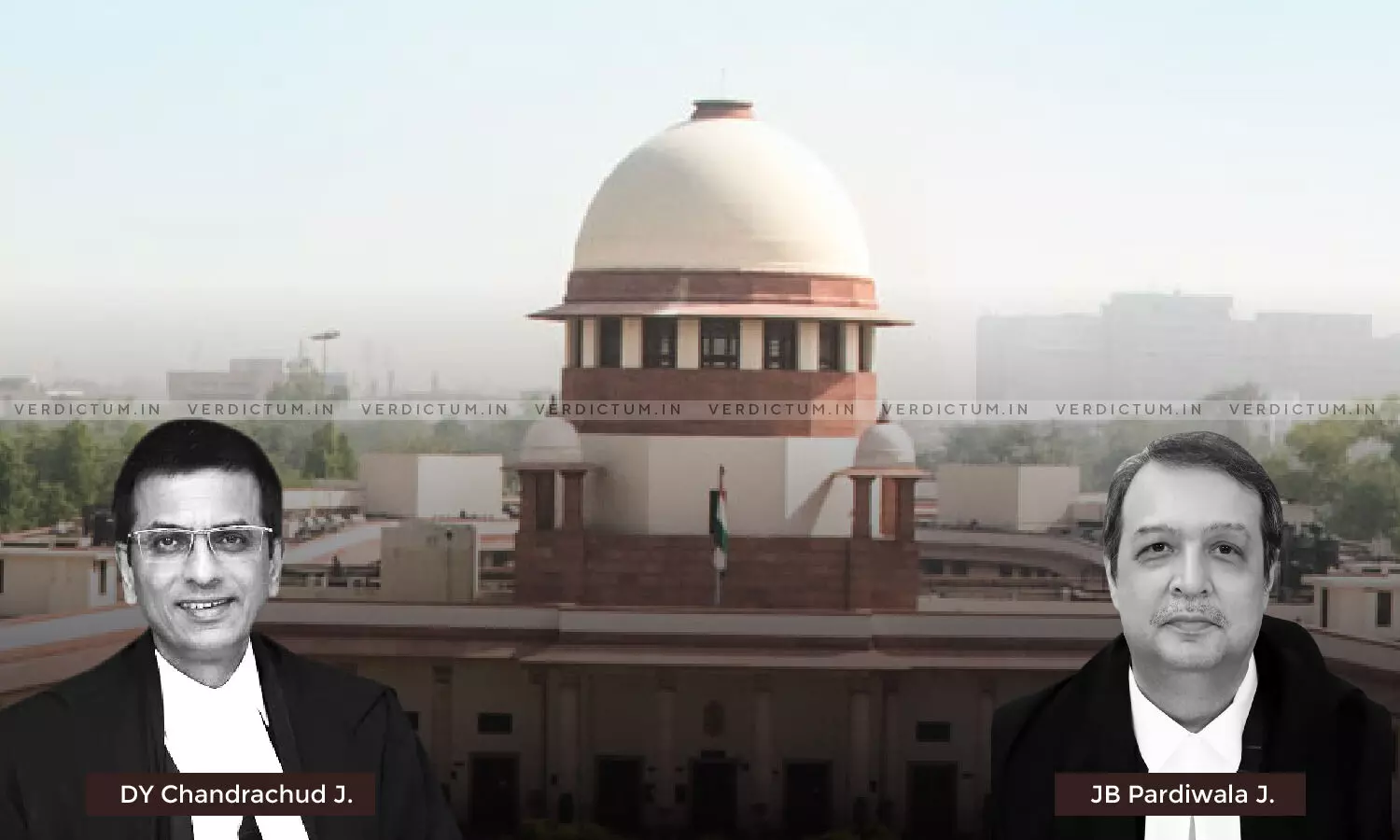
Magistrate Duty Bound U/s. 156(3) To Order Police Investigation When Prima Facie Commission Of Cognizable Offence Made Out: SC
 |
|The Supreme Court has held that if the Magistrate prima facie finds the commission of a cognizable offence, the discretion granted in Section 156(3) of Code of Criminal Procedure should be read as it being the Magistrate's duty to order police investigation.
The Bench of Justice Dhananjaya Y Chandrachud and Justice J B Pardiwala observed that "…in such cases, where not only does the Magistrate find the commission of a cognizable offence alleged on a prima facie reading of the complaint but also such facts are brought to the Magistrate's notice which clearly indicate the need for police investigation, the discretion granted in Section 156(3) can only be read as it being the Magistrate's duty to order the police to investigate."
Section 156(3) CrPc contains the provision where the magistrate can order for police investigation in a cognizable case.
The Bench further stressed that "Especially in cases alleging sexual harassment, sexual assault or any similar criminal allegation wherein the victim has possibly already been traumatized, the Courts should not further burden the complainant and should press upon the police to investigate."
The Court was adjudicating upon an alleged sexual harassment case where the Vice Chancellor of an Institute was accused of sexually harassing a yoga instructor of the same institute.
On finding that no action was taken by police on her complaint, the complainant-woman had moved Judicial Magistrate First Class (JMFC). The Judicial Magistrate First Class directed the Police to file a status report.
A status report was filed by the police officials before the JMFC, noting that occurrence of any offence was not found.
JMFC held that the case could be decided without collecting evidence from the police and it did not appear just and proper to act on the case filed on behalf of the appellant under Section 156(3) CrPC. The JMFC treated the complaint as a complaint case by granting liberty to the woman to be present for the recording of her statements under Sections 200 and 202 CrPC.
The order of the JMFC was questioned by the appellant-woman under Section 482 CrPC. The High Court dismissed the application.
The High Court held that the JMFC was not under an obligation to direct the police to register the FIR and the use of the expression "may" in Section 156(3) CrPC indicated that the JMFC had the discretion to direct the complainant to examine witnesses under Sections 200 and 202 CrPC, instead of directing an investigation under Section 156(3)
Aggrieved, the appellant approached Supreme Court.
Senior Advocate Anitha Shenoy appeared on behalf of the Appellant whereas Senior Advocate R Basant appeared for the accused-Vice Chancellor. Advocate Gopal Jha appeared on behalf of the state.
At the outset, the Court reiterated the bounden duty of police to register an FIR whenever a cognizable offence is made out in a complaint.
The Court said that "Whether or not the offence complained of is made out is to be determined at the stage of investigation and / or trial. If, after conducting the investigation, the police find that no offence is made out, they may file a B Report under Section 173 CrPC. However, it is not open to them to decline to register an FIR."
Secondly, the Court emphasized that the Magistrate should direct for police investigation in cases such as this where the Magistrate find the commission of a cognizable offence alleged on a prima facie reading of the complaint.
In this backdrop, the Court held that the JMFC ought to have exercised jurisdiction under Section 156(3) of CrPC to direct the police to investigate. Therefore the Court set aside the decision of the High Court and directed JMFC to order an investigation by Police under CrPc Section 156(3).
In order to ensure a fair investigation in the present case, Court directed the investigation to be supervised by a woman officer not below the rank of Superintendent of Police to be nominated by the DIG of the zone concerned.
Before parting with the judgment the Court emphasised the need to handle sexual crimes with more sensitivity.
"The Courts must try to ensure that the process of attempting to bring alleged perpetrators to justice is not onerous for the victims. Aggrieved persons should not have to run from pillar to post for the mere registration of a complaint and initiation of investigation especially when a cognizable offence is prima facie made out in their complaint.", the Bench opined.
The Court stressed the responsibility of the Trial Courts to deal with the sexual crime victims in an appropriate manner by allowing in-camera proceedings, ensuring accused and the aggrieved woman don't come face to face, and ensuring counsel for accused treats aggrieved woman in a respectful manner.
Cause Title- XYZ v. State of Madhya Pradesh & Ors.
Click here to read/download the Judgment